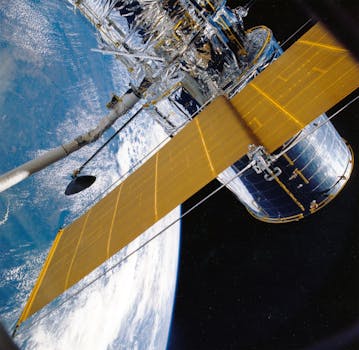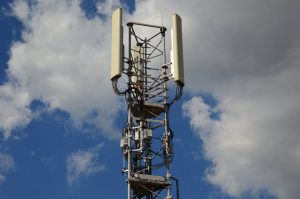The Future of Satellites: Revolutionizing Global Communication and Exploration

The Future of Satellites: Revolutionizing Global Communication and Exploration
The future of satellites holds immense promise, with advancements in technology and investment in space exploration, we can expect significant improvements in global communication, navigation, and Earth observation. The future of satellites is expected to be shaped by cutting-edge technologies such as 5G, artificial intelligence, and the Internet of Things (IoT). In this article, we will delve into the latest trends and developments in the satellite industry and explore the potential applications of satellite technology in various fields.
Satellite technology has come a long way since the launch of the first artificial satellite, Sputnik, in 1957. Today, there are thousands of satellites orbiting the Earth, providing a wide range of services including television broadcasting, telecommunication, navigation, and Earth observation. The future of satellites is expected to be driven by the growing demand for satellite-based services, particularly in the areas of global communication, navigation, and Earth observation.
Advancements in Satellite Technology
One of the key drivers of the future of satellites is the advancement in satellite technology. The development of new technologies such as 5G, artificial intelligence, and the Internet of Things (IoT) is expected to play a significant role in shaping the future of the satellite industry. For example, the use of 5G technology in satellites is expected to enable faster data transfer rates, lower latency, and greater connectivity. Similarly, the use of artificial intelligence and machine learning algorithms in satellites is expected to improve the efficiency and accuracy of satellite operations.
Another significant development in satellite technology is the use of small satellites, also known as CubeSats. These small satellites are relatively inexpensive to launch and can be used for a variety of applications, including Earth observation, communication, and navigation. The use of small satellites is expected to democratize access to space, enabling more countries and organizations to participate in space exploration and development.
Applications of Satellite Technology
Satellite technology has a wide range of applications in various fields, including global communication, navigation, Earth observation, and space exploration. In the area of global communication, satellites play a critical role in providing connectivity to remote and underserved communities. Satellites are also used in navigation, providing location information and timing signals to GPS receivers on the ground.
In the area of Earth observation, satellites are used to monitor the environment, track climate change, and predict weather patterns. Satellites are also used in space exploration, providing critical communications and navigation services to spacecraft. The future of satellites is expected to be shaped by the growing demand for satellite-based services, particularly in the areas of global communication, navigation, and Earth observation.
Challenges and Opportunities
Despite the many opportunities presented by the future of satellites, there are also several challenges that need to be addressed. One of the key challenges is the issue of space debris, which poses a significant risk to satellite operations and the environment. Another challenge is the need for greater international cooperation and regulation, to ensure that the benefits of satellite technology are shared equitably and that the risks are mitigated.
In conclusion, the future of satellites holds immense promise, with advancements in technology and investment in space exploration, we can expect significant improvements in global communication, navigation, and Earth observation. As the satellite industry continues to evolve, it is likely that we will see new and innovative applications of satellite technology, driving economic growth, improving quality of life, and expanding our understanding of the universe.





